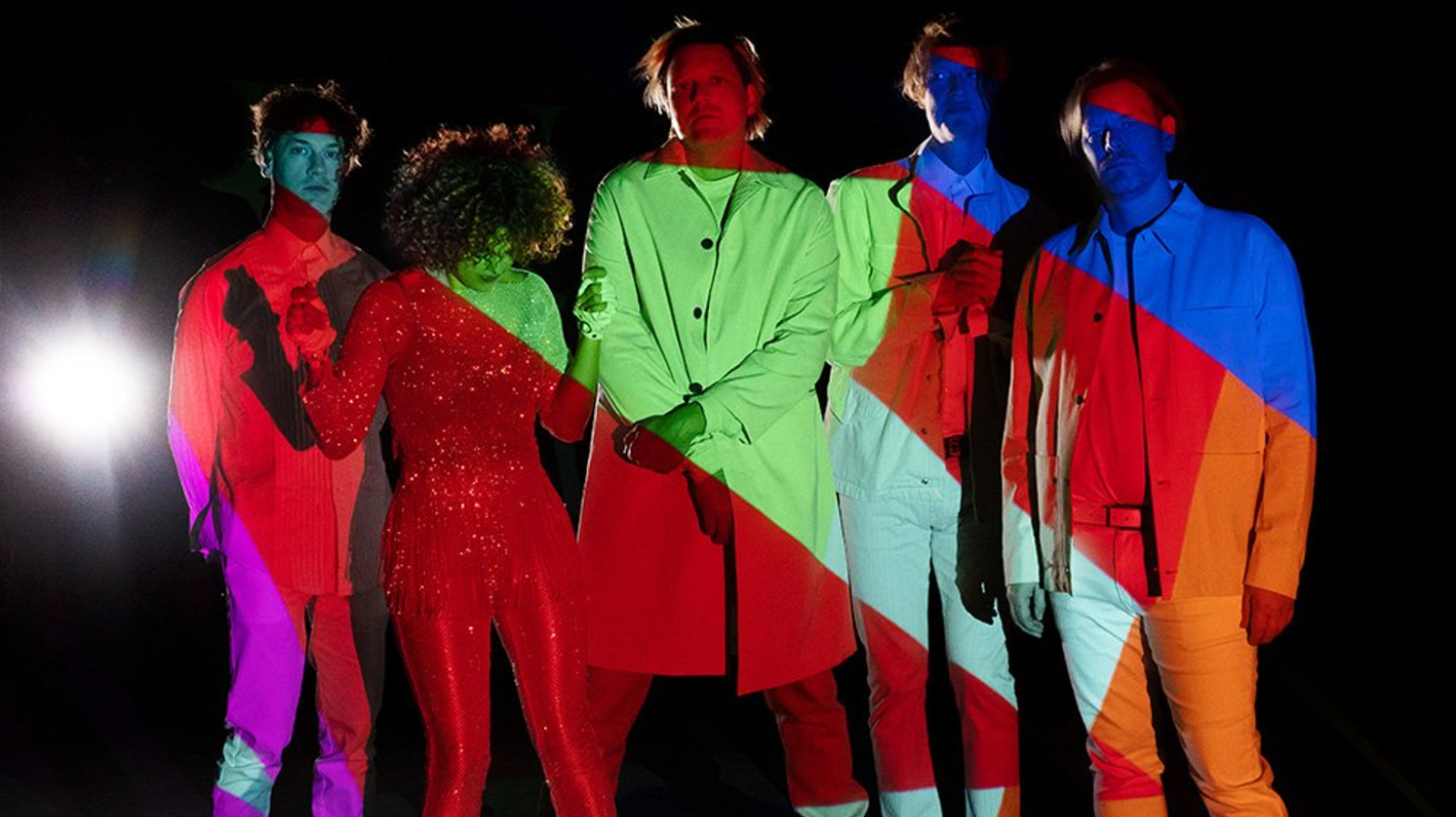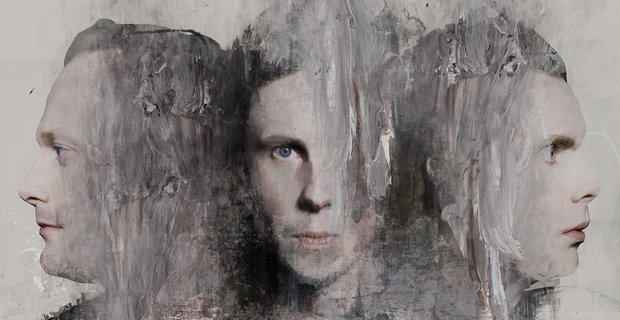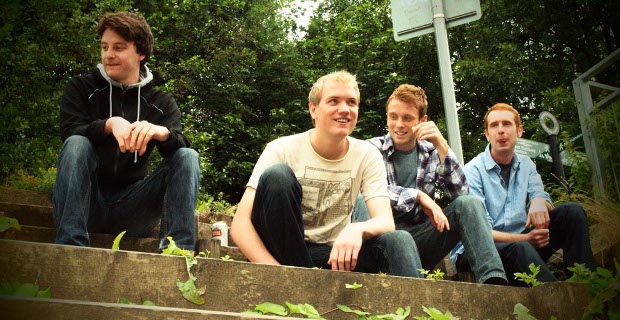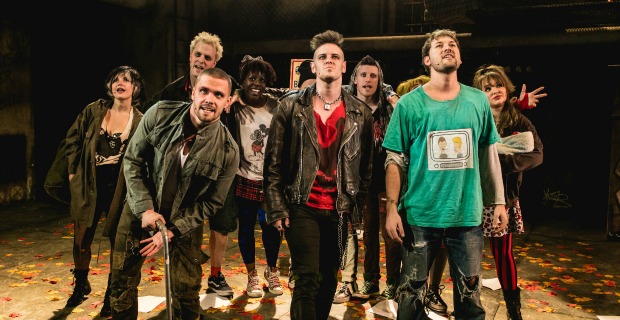What happens when an identity-forming band threatens to fall apart in real-time?
Whatever opinions you currently hold about Arcade Fire, their brief UK tour was surely an interesting time to see them perform live. Just a few days before their worldwide trek kicked off in Dublin on August 30, Pitchfork ran a pretty damning exposé highlighting the extra-marital exploits of the band’s frontman, Win Butler.
Citing a handful of women and one gender fluid individual, each spoke to the outlet via pseudonyms and painted pictures full of similar patterns of power abuse, sexual activity and, in some cases, alleged forceful behaviour. Like similar reads in the wake of the #MeToo movement, the article was yet another seemingly disappointing and contradictory revelation about a member of a much-loved band that, on the surface at least, showcases themes of light, positivity and enduring hard times. In just a few hundred words, it no doubt shattered the deep-rooted links Arcade Fire held for many of its fans across the world.
Butler quickly issued a statement admitting that he had made mistakes both in his marriage and his personal life but insisted that all reported encounters were consensual. He also vehemently denied any allegations of forceful behaviour or sexual abuse – something echoed in a statement by his bandmate, wife and partner of 20 years, Régine Chassagne, whose message suggested an unconventional yet trusting partnership and a lost husband that was trying to find his path once more.
In the end, the Arcade Fire frontman did all he could do given the situation and current social climate: he held his hands up, apologised and asked for forgiveness. However for fans, the bitter taste certainly still lingers in what is surely a humbling moment for both a singer and a band operating at the top of their game amid claims that – according to Pitchfork’s reports at least – have had troublingly deep personal and psychological ramifications on those directly involved with Butler’s alleged behaviour.
So what now? Well, as far as Arcade Fire is concerned, it’s business as usual. Arriving in Dublin in early September, support act Feist swiftly announced her departure in a lengthy statement detailing her conflicted thoughts on the situation. The band powered on with their huge arena tour regardless, seemingly ready to seek atonement from their fans directly by meeting them face to face – and now, alone.
Social media lit up with chatter from disappointed fans leading to their arrival up North: some were angry at their inability to secure refunds, some suggested they’d struggle to enjoy the show knowing what they now know, and others said they probably wouldn’t even go at all. As the afternoon of their Saturday Manchester show gave way to evening, it was hard to predict what the scene might be like at the AO Arena as show-time neared.
For the most part, audiences – just like the band themselves – seemed to power forward as well. There were no protests and few empty seats in one of the city’s largest venues – and when Butler, Chassagne and co emerged in the middle of the standing area for a crowd-pleasing opener of their sing-a-long hit “Rebellion (Lies)”, Manchester dutifully sang along – despite the stunt having a distinct whiff of trying to get the audience on their side straight off the bat with a track typically reserved for an encore closer.
For the next two hours, the band continued to do what they do best: banging out anthemic hits from their extensive six-record back catalogue with little sign that anything was amiss. If media headlines have had a lasting impact on this musical couple (surely, they have the potential to irreparable crack the band in two, at the very least), it wasn’t immediately apparent to tonight’s crowd. There didn’t appear to be any frosty air between Butler and Chassagne, with the pair singing back-to-back at one point and donning grins throughout.
Certain lyrics appeared to hold more weight. Lines from “Unconditional I (Lookout Kid)” from their short-but-sweet new record “We” – “Cause nothing is ever perfect / No one’s perfect / Lеt me say it again: no one’s perfеct” – felt simultaneously like a confession and a reminder of our own fallibility. Meanwhile, Chassagne received the adoration she so deserves during her front-and-centre moments; cutting a powerful and defiant stance that screamed cool with her pixie-like figure framed in a slick neon green, transparent perspex jacket.
At one point in between hits, Butler said something throwaway that was almost missed but stark and revealing if true. Thanking Manchester for its cheers, he revealed that he might not still be alive today if the audience wasn’t still behind him and his band. In a weird mirrored moment, it was reminiscent of the same talk of depression and dark thoughts that were referenced by those who bravely came forward and spoke to Pitchfork about the singer’s alleged actions.
For both parties, it’s clear that there are still some deep wounds here that linger and will surely not be healed overnight. While the future for both Butler and Arcade Fire still feels murky and uncertain as the pain of those affected attempts to heal, the singer’s candid revelation and the cards-on-the-table vibe of tonight’s show seemed to hit home just how important – and necessary – a light in the darkness and a path forward is whenever anyone is faced with shadows, darkness, disillusionment and pain.
Related stories:




